Why Grantham’s relationship with Margaret Thatcher is ‘split down the middle’
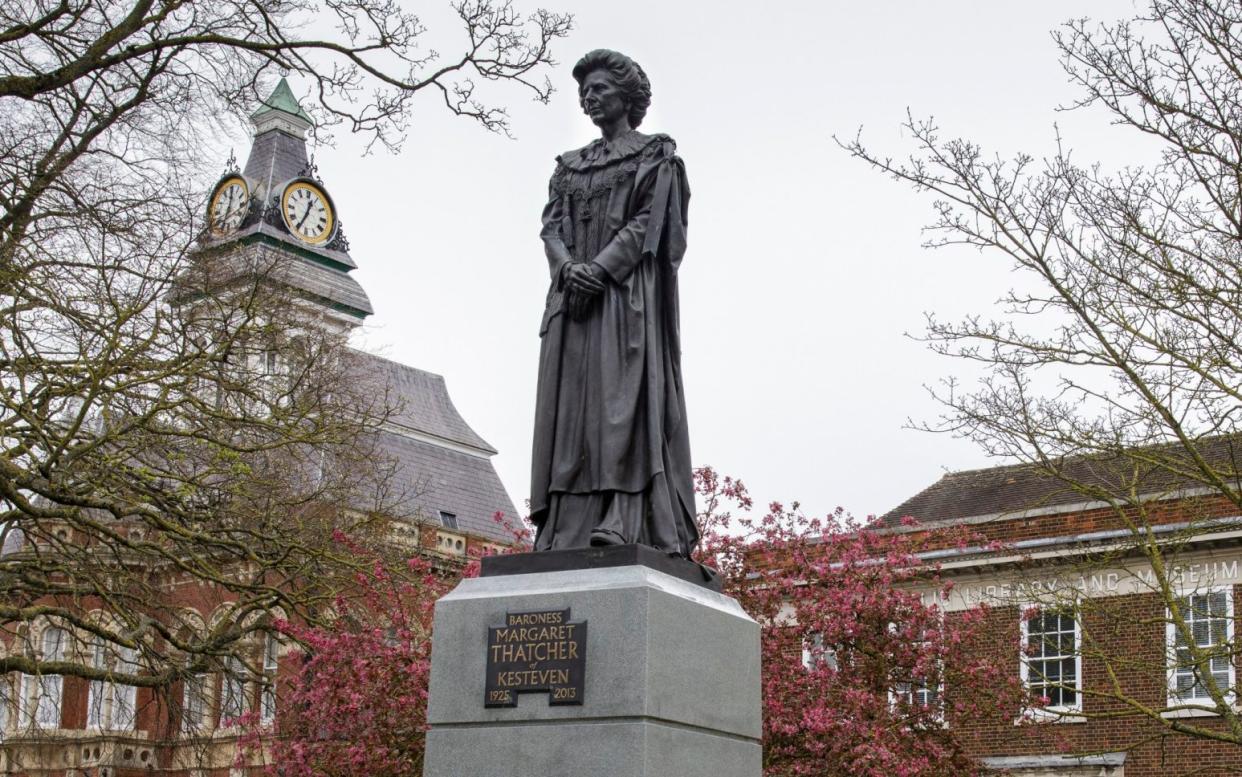
- Oops!Something went wrong.Please try again later.
“She’s got the statue. She doesn’t need everything does she?” Karen McDonald, 68, is on St Peter’s Hill green and just a few yards from where Margaret Thatcher’s bronze stands upon her 10ft pedestal. While there is respect and admiration for Margaret Thatcher, as well as an acknowledgement that their town is the birthplace of a titan of global politics, many of the denizens of Grantham have a complex relationship with the Iron Lady.
“I don’t think changing the name of the museum would make any difference to the number of tourists who would come here,” adds the retired Grantham resident. “I want it to stay as it is. Not everybody likes her, do they?”
For the new leader of Grantham’s local council, the idea of renaming the town’s museum after its most famous daughter was, above all, a pragmatic way to “increase footfall”.
“Far more people will be looking up the name Margaret Thatcher compared to searching for Grantham Museum,” Ashley Baxter, the Independent leader of South Kesteven District Council, said in March. “Some people are fond of her legacy, and some despise it. If we tell the story with different perspectives, far more people will be likely to come to Grantham to see the statue and visit the museum.”
Other residents, however, take a different view – exposing a significant divide among locals, many of whom insist that there is far more to Grantham than its history as the birthplace of the longest-serving Prime Minister since the Marquess of Salisbury in 1902.
Characteristic of the locals is a warmth for their town and a concern that by narrowing the focus on Thatcher they risk having what is left of their identity eaten away until it becomes “Thatcherville”. As the middle of “deep England”, Grantham’s doldrums are palpable. Like so much of the country, a bit of sunshine does the high streets and municipal squares the world of good, but there’s not been much of that recently. April is the cruellest month, of course.
Thatcher was born in Grantham in 1925 and spent her childhood above her father’s grocery shop on North Parade, which is no longer there but marked with a plaque to commemorate her birth. She attended Huntingtower Road Primary, Kesteven and Grantham Girls’ School and the Finkin Street Methodist Church. In 1943, she left Lincolnshire to study Chemistry at Oxford before entering politics.
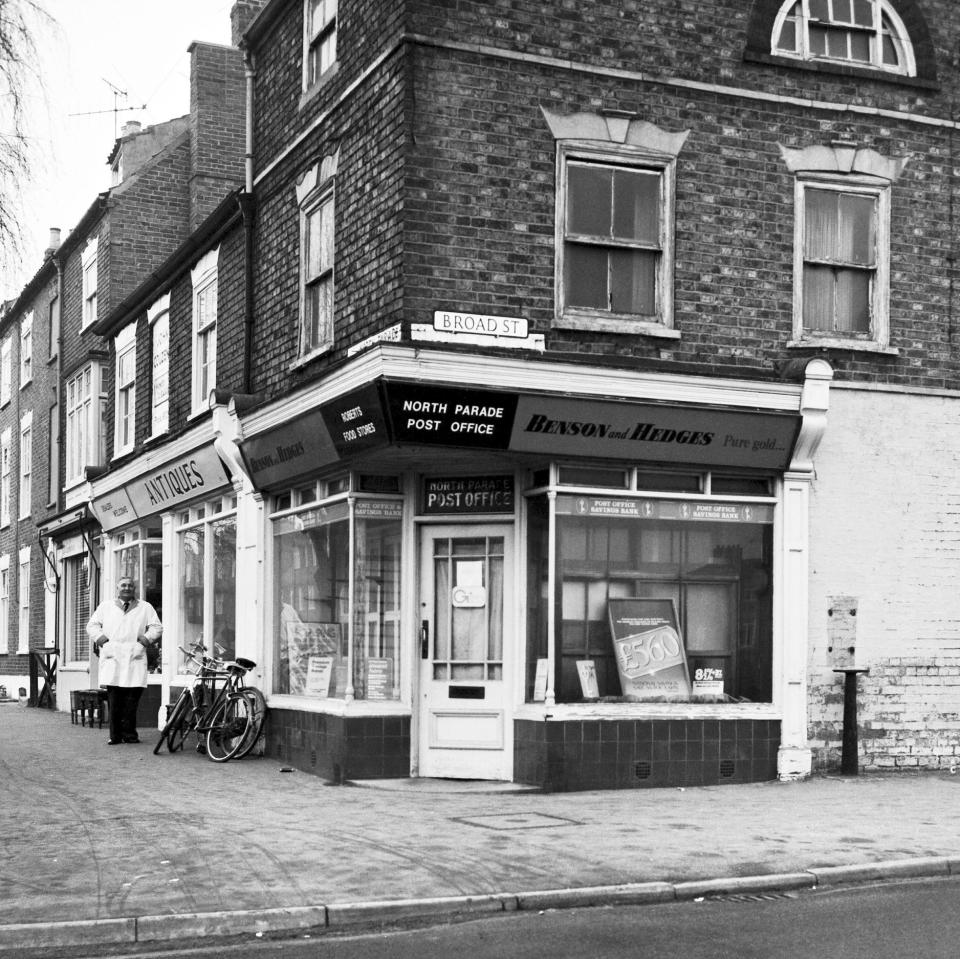
“The town’s relationship with Thatcher is completely split down the middle,” says Vivienne Reichelt, 47, manager of Digby’s cafe as well as the manager of the Grantham Museum in question and, like all its staff, a volunteer. “Younger people don’t know who she is,” she says.
Reichelt stands in her apron by the counter as customers who accurately reflect the ageing population of the area come and go.
Between the last two censuses, the average age in South Kesteven rose from 43 to 46 (the English average is 40). In those ten years, the number of people between 65-74 rose by almost 4,000 and the number between 35-49 fell by more than 3,000.
The Grantham Museum has been adamant in its opposition to the proposed name change by Baxter. Housed in a smart square building in the town centre, next to the Guildhall Arts Centre, it looks out over a green featuring the statue of Thatcher, erected in 2022, as well as another of Isaac Newton, her main competition for renown as Grantham’s greatest scion.
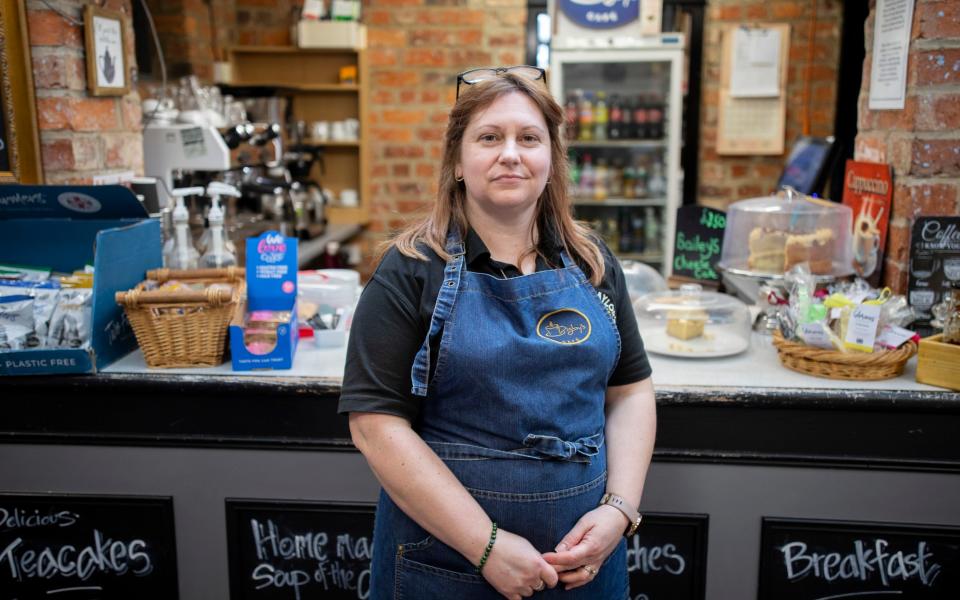
“What the council leader said is ridiculous,” says Reichelt. “All the museum staff had a chat about it and the feeling is completely unanimous. It’s not an issue for the council. We have an exhibit for Thatcher in the museum [including a Spitting Image puppet] and it already brings in footfall, but so does Isaac Newton and Edith Smith [Britain’s first female police officer]. I also think it would put some people off – we’ve seen how the statue has been defaced and we don’t want that at the museum. I’ve never heard of this new leader of the council. He’d do better to introduce himself than start stirring things up.”
Others disagree. One Conservative councillor says: “I’d be very happy for it to be changed. We need to use what’s important in our town and we should use it as much as possible. I think it would bring more recognition to the museum if it was called that, though I understand that wouldn’t please everyone.”
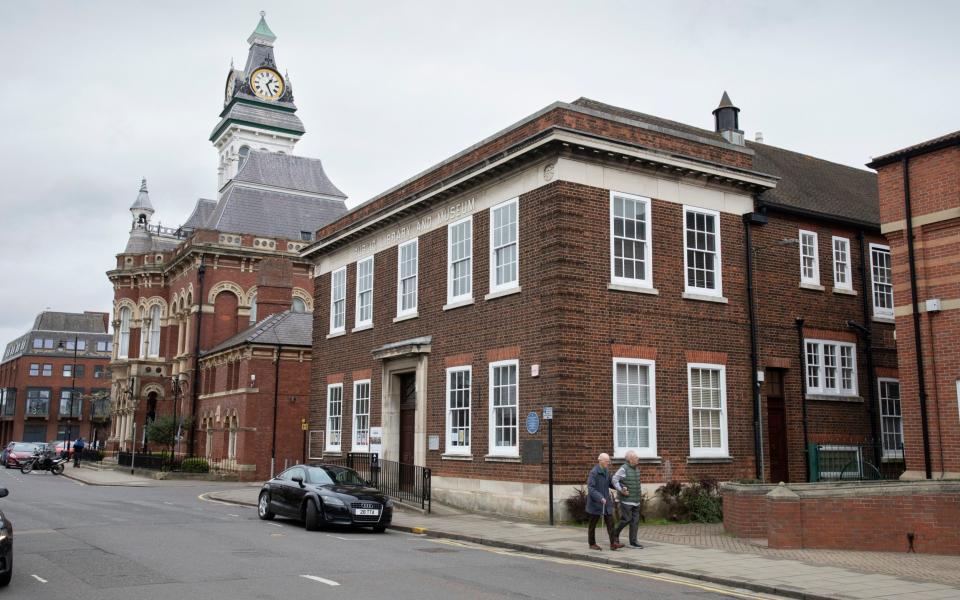
The town has been represented by Conservative MPs since 1950, with Gareth Davies, now a Treasury minister, elected as MP for Grantham and Stamford in 2019 with a 26,000 majority. The local Conservative association’s supporters group is called the Lady Thatcher Patrons’ Club.
The statue is one of very few public sculptures of British premiers from recent history, including Winston Churchill in Westminster, Clement Attlee in Mile End and Harold Wilson in Huddersfield. Thatcher’s is on a raised plinth to help prevent vandalism, though there have been regular assaults.
“I’ve got no qualms about changing the name, but a lot of things have been done to the poor statue” says Barbara Carey, 70, a retired local dressed in a symphony of fluorescent green.
“The younger generation don’t see Maggie Thatcher as the Iron Lady.”
Michelle Auckland, 48, a private tutor from Grantham, says: “I think it’s disgusting to suggest renaming the museum.” Auckland, who is sitting in a cafe and making her point so passionately she’s letting her baked potato with coronation chicken go cold, adds: “Margaret Thatcher is only part of Grantham. She never really came back. She was in a position to do something for Grantham.”
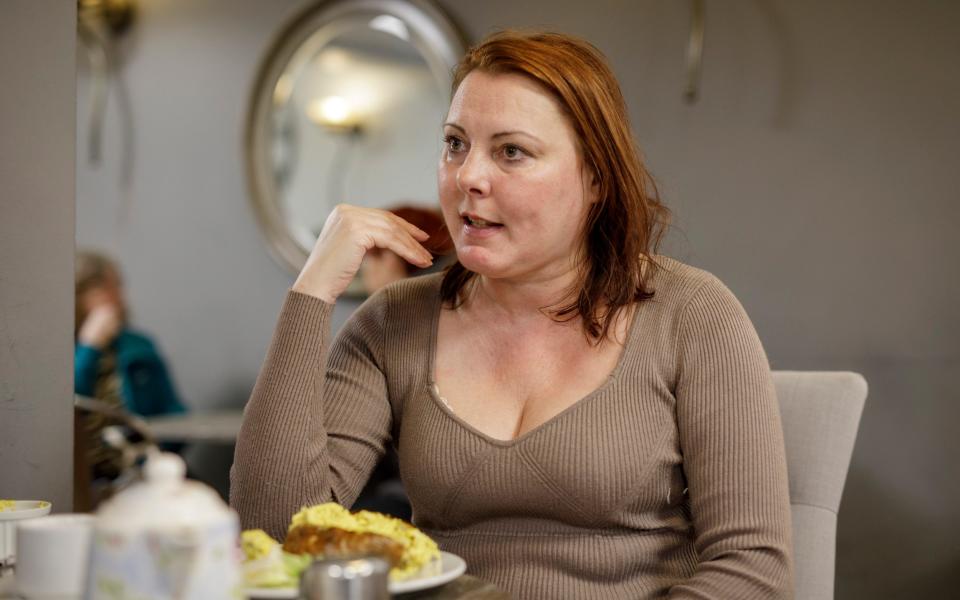
In 1986, Prime Minister Thatcher did return to her grammar school, for which she expressed great affection, but her lack of personal affiliation to Grantham itself was a recurring theme among residents. “I don’t think she did a lot for Grantham,” says Reichelt.
Rio Harada-parr, aged 21, agrees. “I don’t think she did much for the area even if she is clearly a very important historical figure,” says the Grantham-born graduate, who is standing alone propped up against Thatcher’s statue, the edges of his long grey coat rippling in the breeze as he waits for his friends. “I have strong reservations about renaming the museum. I don’t think it’s representative of the people and the area.”
“The statue has been attacked almost weekly but that’s people from Grantham I’m afraid,” says Graham Drury, 53, who is out in town with his mother. Drury was born and bred in Grantham and is the manager of Stamford AFC, a Lincolnshire club in the seventh tier of the football pyramid. “If it brings money and tourists into the town then fantastic, but I don’t see a need to change the name of the museum. This is a place I enjoy living in but I don’t think she’s ever impacted the town herself.”
“There’s a reason the museum has a cover across the exhibit,” says Auckland. “I find learning about her interesting but to call it the Margaret Thatcher Museum is just alienating ... A part of me thinks the council leader thinks he’s going to get votes for suggesting this.”
One of the ironies of this storm in a commemorative tea cup is that the great woman herself would probably have dismissed a proposal to name a museum after her as needless “fuss”. It would be easy to assume that the historical importance of Thatcher would have made her hometown uniquely affectionate by association, but a further irony is that this has provoked the people of Grantham into exhibiting exactly the kind of civic pride she would have approved of.
Everyone I speak to seems to genuinely like living in Grantham, and, idle vandalism aside, they care about their town and how others see it. More than that, they care about how they see it themselves, and its future.
“I don’t want to downplay her significance,” says Harada-parr. “But I think it locks in a sense of this place that is maybe stuck in the past.”

